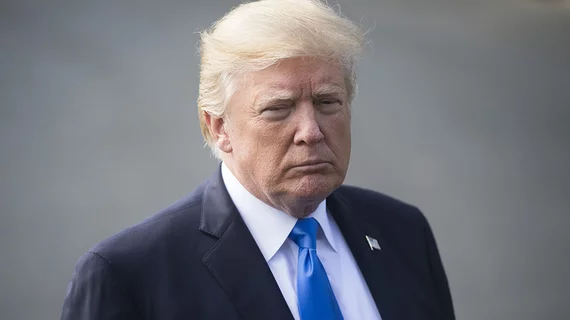‘He is the superspreader’: Trump likely had COVID-19 before Rose Garden event and debate, cardiologist warns
How long, exactly, has President Donald Trump had COVID-19? When did he first test positive?
These are just some of the questions being asked this week by healthcare expects, journalists, politicians and curious Americans—but the White House seems to be sharing as little information as possible.
On Tuesday, Oct. 6, Cardiologist Jonathan Reiner, MD, a professor at George Washington University School of Medicine in Washington, D.C., joined Don Lemon on CNN to discuss the ongoing situation. He speculated that Trump has likely had COVID-19 for at least a week—and may have even had it on Sept. 26 during the Supreme Court nomination ceremony held for Judge Amy Coney Barrett.
“First of all, there’s no chance the president was tested before the debate,” Reiner said. “I think that’s pretty clear. He was symptomatic on Thursday night, and it takes about a week after infection to get sick enough to be admitted to the hospital. I think the president was infected with the coronavirus for at least a week before he was admitted to the hospital, so that takes him to the end of the prior week, before the super-spreader event.”
Lemon also asked Reiner if he thinks Trump could be the superspreader responsible for so many White House employees and people close to the president being diagnosed with the virus. Reiner was very quick to offer an answer.
‘I think he is the super spreader, and I think the reason the White House will not have the CDC do a formal check and review every case is that they’re concerned that ‘patient zero’ might be the President of the United States.”
Earlier in the day, Reiner also discussed Trump’s return to the White House with CNN, calling it “inexplainable” that the president would walk inside without a mask while still “actively shedding virus in millions of particles.”
Trump’s physician, Sean P. Conley, DO, has not provided a timeline of the president’s diagnosis, but did say in a news conference that he is doing “extremely well.”
Click the link below for the full video of Reiner’s appearance on CNN with Don Lemon:

